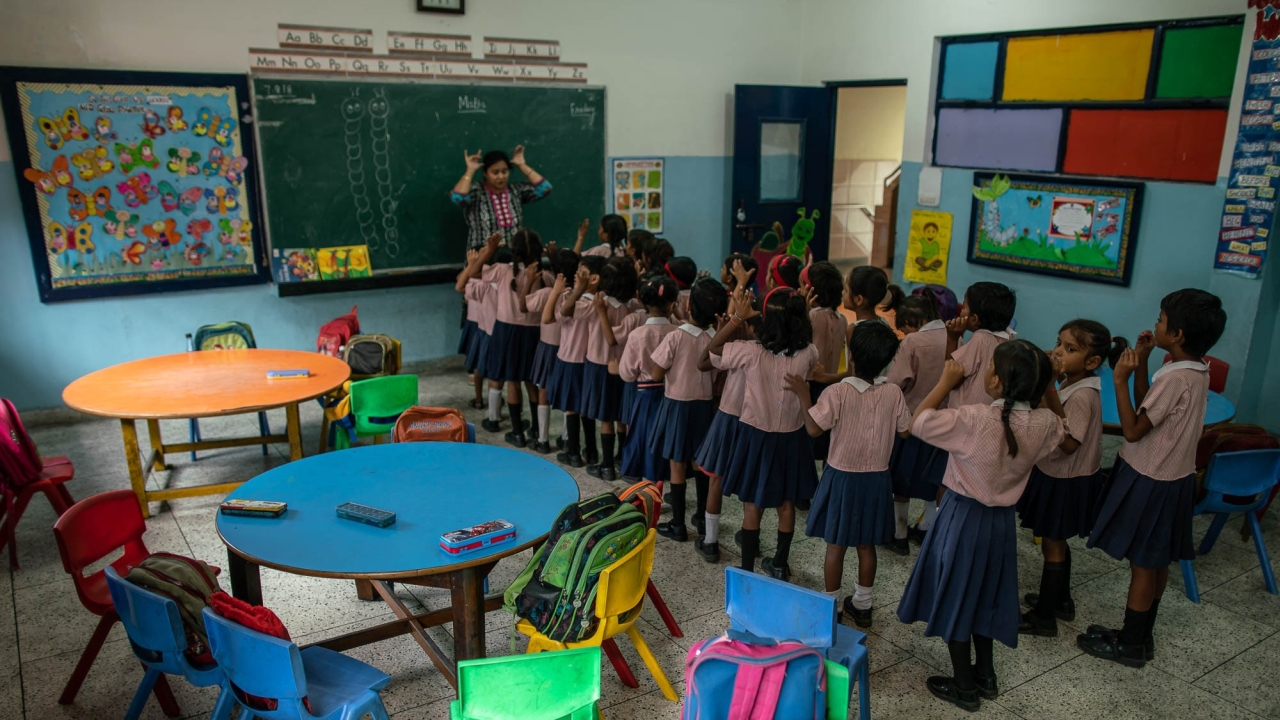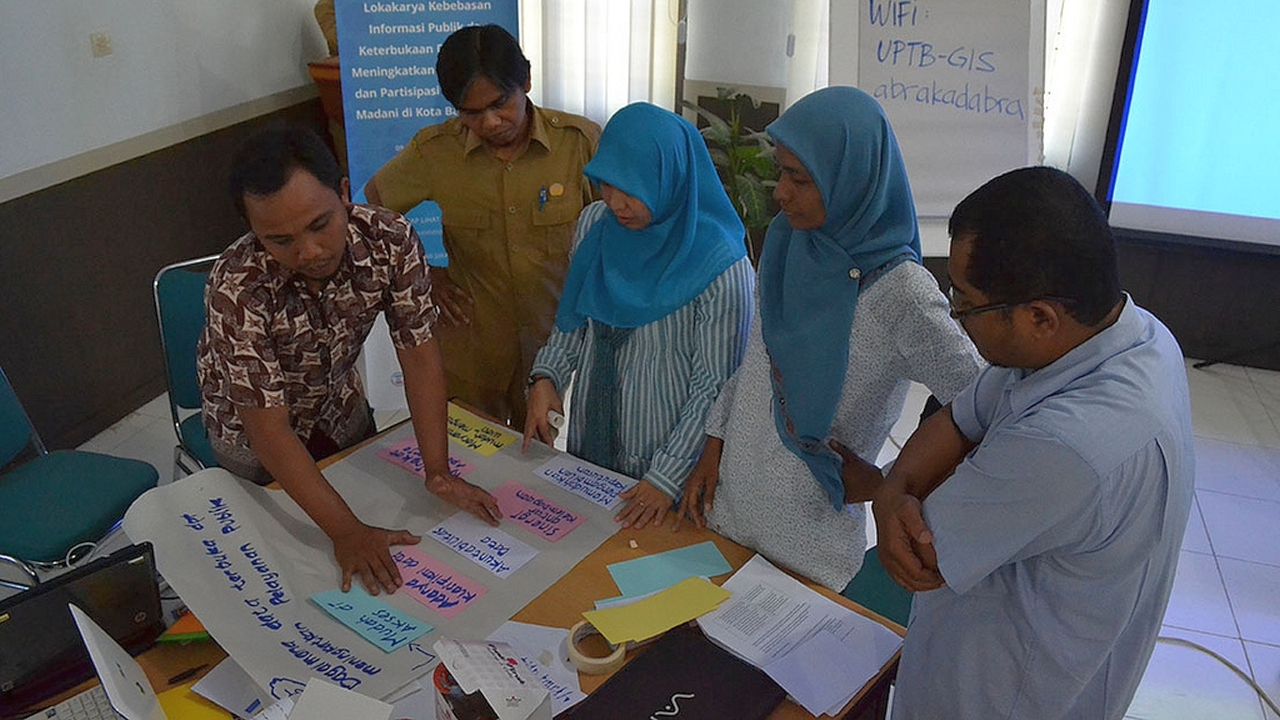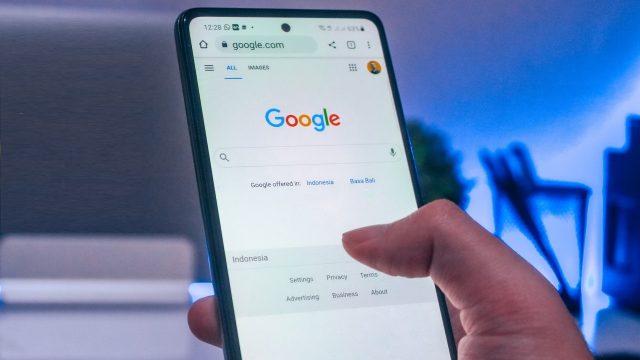
Moving towards the knowledge needed to resolve complex problems
It is being increasingly understood that resolving complex issues such as climate change and immigration requires approaches that transcend single disciplines and perspectives1. For example, recognition of the need for cross-domain knowledge integration and knowledge co-creation in regard to complex issues is gaining traction in knowledge management (KM)2,3 and academic research4.
From an academic research perspective, a paper5 published in a recent special issue of the open access Journal of Applied Learning & Teaching (JALT) suggests that multidisciplinarity and interdisciplinarity offer a potential way forward, but also alerts to the problems with these approaches. Authors Richard Gagnon, Bruno Santos Ferreira, and Gilberto Lacerda dos Santos advise that:
Multidisciplinarity – which consists in the study of a same question by several disciplines – and interdisciplinarity – which involves the transfer of methods from one discipline to another in a collaborative spirit – could be first steps as these approaches are broader and extend beyond the framework of a single discipline. However, they would end up short as the contribution of each discipline would remain within its own boundaries, juxtaposed to the others more or less like a patchwork instead of forming together a truly integrated response to the actual question, limiting a true and shared understanding of its meaning and consequences.
This is because each discipline has its own specialised area of focus, including its own vocabulary, theories, and techniques. This specialisation creates knowledge boundaries with other disciplines.
The different types of knowledge
Gagnon and colleagues seek to provide a pathway forward in transcending these boundaries by defining and describing different types of knowledge, leading to what they describe as the “complete knowledge” needed to be able to better deal with complexity:
Knowledge Perspectives
- Individual Knowledge – Knowledge considered from the perspective of the individual. It is subjective, and unobservable from the outside.
- Social Knowledge – Knowledge considered from the perspective of a community. It is objective (i.e., from others’ point of view), and observable from the outside.
When these two types of knowledge coexist and are compatible, the individual trusts what they know and feels confident and autonomous, and is acknowledged by the reference community to which they belong.
Types of Individual Knowledge
- Private Individual Knowledge – Private, and non-sharable either fundamentally (for example sensations, which must be felt by oneself, such as the taste of an orange) or intentionally (anything that an individual chooses to keep to themselves).
- Public Individual Knowledge – Public, and shared with the reference community and visible in the Social Knowledge (for example the common language of the reference community).
In general, individual knowledge is a mixture of private and public knowledge. For example, we all know what snow or beach means but we all have different experiences associated with them. Further, it is unlikely that either just private or public knowledge exists in an individual.
Social Knowledge is larger than the Public Individual Knowledge, because Social Knowledge comprises not only Public Individual Knowledge (for example, the specialized vocabulary of a reference community is found in both categories) but also Private Individual Knowledge (for example, personal idiosyncrasies that are not easily transferable, if ever possible, to other people). Therefore, all Public Individual Knowledge is Social Knowledge, but not all Social Knowledge is Public Individual Knowledge.
Meaningful Knowledge
Knowledge is meaningful for an individual when it is relevant and valid from their point of view, and knowledge is meaningful for a community when it is relevant and valid from the point of view of the community.
- Individual Meaningful Knowledge – Knowledge pertaining to the individual perspective of a subject, both private and public, and considered relevant and valid by the individual.
- Public Meaningful Knowledge – The public part of Individual Meaningful Knowledge. To be recognised by the reference community, Public Meaningful Knowledge must be relevant from the perspective of the community and validated according to its position.
Encyclopedic Knowledge
Both individuals and societies desire meaningful knowledge, and scientific disciplines look for it. One of the most ambitious intellectual endeavours in history has been encyclopedia, which have aimed at presenting all the scientific, artistic, and professional knowledge of the time, to constitute, in a structured way, the totality of the then human knowledge.
- Encyclopedia – Can be partial or universal depending on its scope, and is that kind of meaningful knowledge which contains nothing but public knowledge.
- Personal Encyclopedia – All individual meaningful knowledge including both their public and private part. Gagnon and colleagues state that it is by definition perfect since it only contains meaningful knowledge.
- Private Personal Encyclopedia – The whole of the private knowledge associated with individual meaningful knowledge.
- Public Personal Encyclopedia – The totality of the public knowledge associated with individual meaningful knowledge.
Gagnon and colleagues state that the subset of the meaningful social knowledge of an individual will be called Perfect Social Personal Encyclopedia and the set of all Perfect Social Personal Encyclopedias will constitute the entire meaningful knowledge of Humanity, i.e., a true Universal Encyclopedia, the closest form of Social Complete Knowledge that what one can think of. This very inclusive definition of Perfect Social Personal Knowledge therefore leads to the easily recognized fact that Humanity knows much more in a meaningful way than what can be made objective in words or otherwise.
The implications for KM
In consideration of the above, Gagnon and colleagues make the following observations:
- In regard to Individual Meaningful Knowledge, a given piece of knowledge can be singular, at the limit known by only one individual. It can also be false for others, but for this individual, it is loaded with meaning and precious. If it ever becomes necessary to alter this knowledge, it will be difficult.
- Any observation or characteristic that could be attributed to individual meaningful knowledge would essentially also apply to public meaningful knowledge as it concerns a distinct community – thus comparable to an individual – in a society that comprises many. Seen from this angle, a public meaningful knowledge can be, paradoxically, singular, but also false or unacceptable to other people or communities.
- In general, any individual living in a society possesses hybrid knowledge, i.e., made of public and private elements. It will be recognised by society only if it has been validated by it – more precisely the public elements – which is done through its educational institutions and professional organisations. A first source of conflict then arises, when what is relevant for an individual is not necessarily relevant for the society or the group of individuals concerned.
- If the positions of the individual and of the reference community coincide – and the knowledge in question is relevant to both – we get back to the situation described earlier as perfect, both for the individual and the reference community. Then the individual really feels at home in this community who, reciprocally, acknowledges him from the outset as one of its members.
- But if, otherwise, the modes of knowledge validation do not coincide, another problem appears because the individual has no choice but to demonstrate to the reference community that they know and share its methods. In practice, the individual most often chooses to adapt to the reference community, at least while being evaluated, and returns to his preferences whenever possible.
- Perhaps surprisingly, perfect knowledge is not ideal knowledge, neither for the individual nor for the community, as it is profoundly exclusive. It retains as meaningful only what fits with them, regarding relevance and validity. This explains, in particular, why different highly educated individuals specialized in different fields might not get along, to the point of denigrating each other sometimes, despite their excellent reputation in their respective fields. This reflects the idea that the perfect personal or public encyclopedias complement each other, exposing our multiple perspectives on the world, but they do not necessarily communicate well with each other, oftentimes contradicting and denying one another.
Complete Knowledge
To address these issues, Gagnon and colleagues propose moving towards what they call “complete knowledge.” I was initially uncomfortable with the term “complete knowledge” because it suggests a final point beyond which we can’t or don’t need to go, and wondered if the term “comprehensive knowledge” might have been more appropriate. However, Gagnon and colleagues describe “complete knowledge” as:
knowledge necessarily imperfect since it can never reach its full development, but nevertheless the richest and most complex that is accessible to an individual or a community. In practice, this would imply making sure to engage in learning all the cognitive means available to human beings, namely thought, feeling, sensation and intuition, associated with respectively speculation, appreciation or evaluation, sensory experience, and revelation. Despite the difficulty … a progressive opening to other points of view should then take place, from the simple, but already troubling, tolerance of these other points of view in the mind of the learner to their, hopefully, evermore complete integration.
That achieving this complete knowledge will be challenging is acknowledged by Gagnon and colleagues. The biggest obstacle is that we do not really want such progress to be made. Indeed, we will actually fight it vigorously, because it implies to assume and accept in ourselves or within a community the coexistence of opposing positions, perhaps fiercely opposing ones; that perfect knowledge is incomplete and not the only valid one we thought it was; and that the very foundations of our lives is, therefore, debatable.
A process quite similar to grief is then required, and this comes at a cost. For several centuries, we specialised, separating human activity into increasingly sharp areas of study, investigation, creation, or practice. As a consequence, we gradually abandoned the general culture that constituted bridges between humans of different professions and trades. Nevertheless, it is by cultivating the less familiar aspects of ourselves, those that we reject as negative or improper, that gradually we can achieve the necessary opening to other points of view.
Dialectical Learning
Gagnon and colleagues advise that when it comes to conceding value to elements of knowledge or points of view of all kinds (intellectual, emotional, psychomotor) that people spontaneously consider as secondary, inappropriate, or even “false” because they escape their understanding, a different approach to learning is required. This is because these elements and points of view are neither desired by the learner, nor can they be validated in the usual way of learning.
It is this kind of feeling that we experience when a position on a given subject is defended with conviction by someone else who sees the world in a way elusive to us. These are, in appearance, irreconcilable representations of the world, but equally true and, therefore, complementary. In this case, someone cannot move from one representation to another “linearly” because they are of different natures and cannot be apprehended with the same learning means.
To open to these, weird to us, representations, Gagnon and colleagues contend that we must instead use the learning means that we do not master and often depreciate. They say that it must be done step by step, avoiding direct confrontation with the opposite point of view, in order to cushion the shock. For example, going from feeling to thought to intuition. In other words, following a dialectical path.
Gagnon and colleagues conclude that in this way, knowledge will be enriched with new and sometimes contradictory aspects and elements that will have to be reconciled. Meanwhile, frontiers between distinct disciplines will fade out, allowing transdisciplinarity to emerge gradually as well as a positive but careful appreciation of complexity.
See also:
- Case study: How polarized debates can be the result of rational deliberation, and how they can be resolved
- Lessons from two neighbouring research disciplines that failed to learn from each other
Header image source: John Englart on Flickr, CC BY-SA 2.0.
References:
- Ramalingam, B., Jones, H., Reba, T., & Young, J. (2008). Exploring the science of complexity: Ideas and implications for development and humanitarian efforts (Vol. 285). London: ODI. ↩
- Cummings, S., Regeer, B. J., Ho, W. W., & Zweekhorst, M. B. (2013). Proposing a fifth generation of knowledge management for development: investigating convergence between knowledge management for development and transdisciplinary research. Knowledge Management for Development Journal, 9(2), 10-36. ↩
- Cummings, S., Kiwanuka, S., Gillman, H., & Regeer, B. (2018). The future of knowledge brokering, perspectives from a generational framework of knowledge management for international development. Information Development, https://doi.org/10.1177/0266666918800174 ↩
- Bammer, G. (2019). Key issues in co-creation with stakeholders when research problems are complex. Evidence & Policy: A Journal of Research, Debate and Practice, 15(3), 423-435. ↩
- Gagnon, R., Ferreira, B. S., & dos Santos, G. L. (2019). Towards complete knowledge for complex problems resolution. Journal of Applied Learning and Teaching, 2(Sp. Iss. 1), 8-16. ↩
Also published on Medium.






